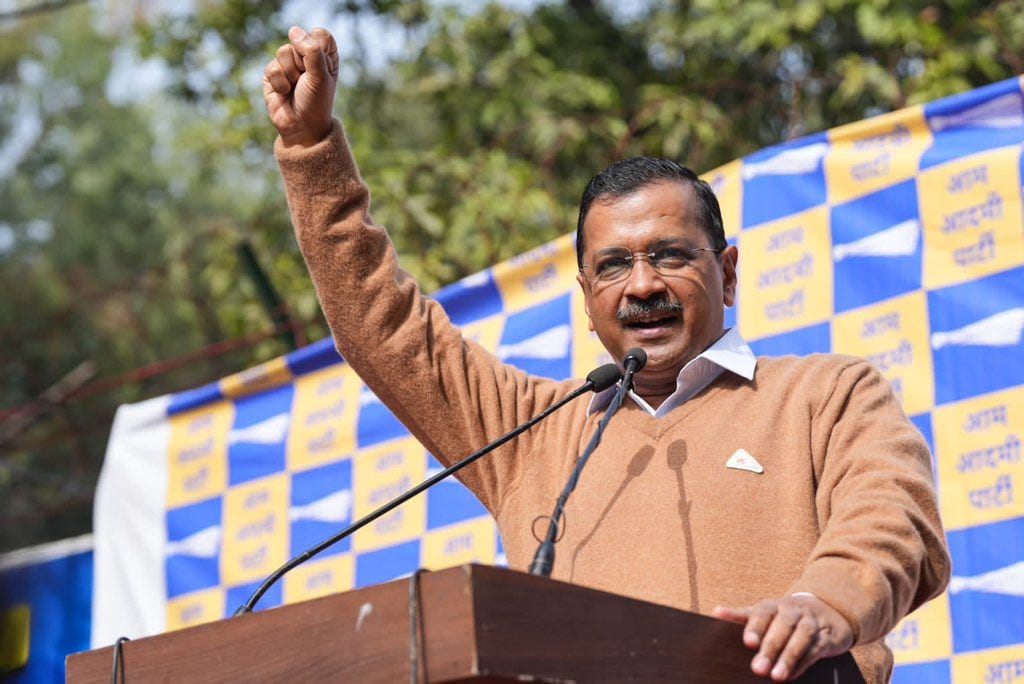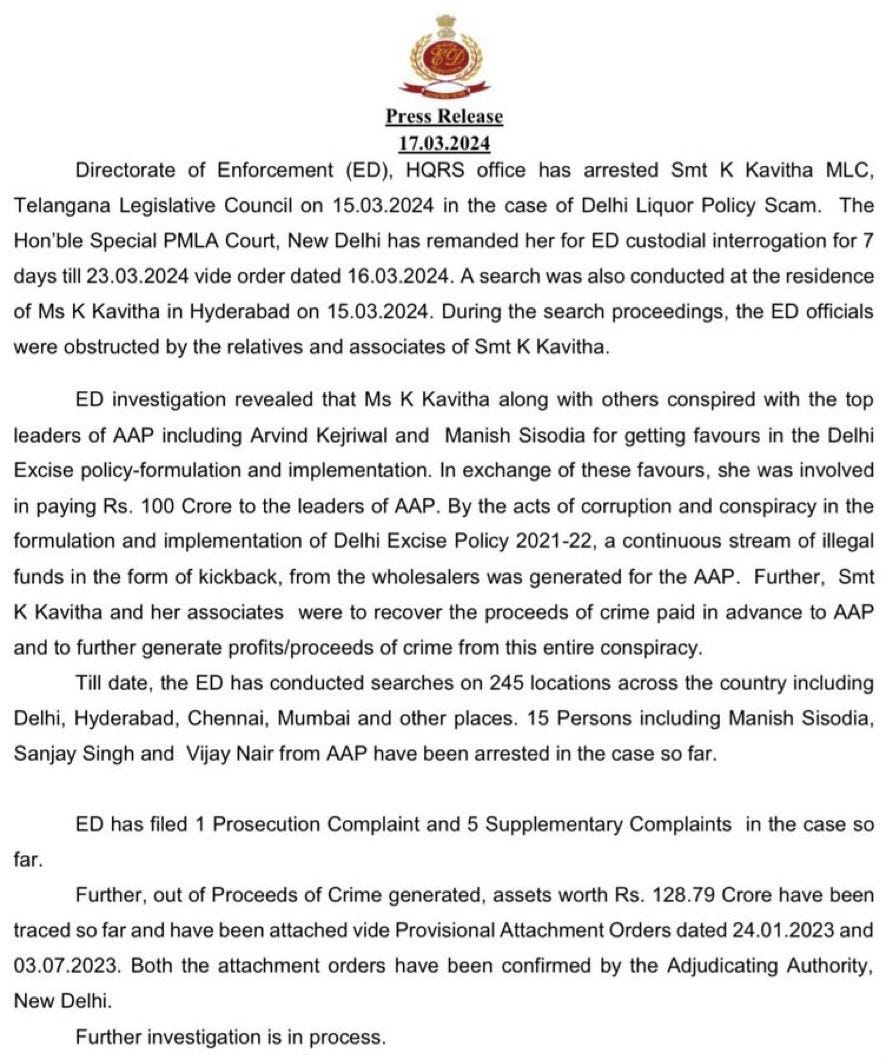Kejriwal in Delhi High Court: Crucial Hearing Today
Coming on the eve of the ninth summons from the Enforcement Directorate, today's proceedings before Delhi High Court would be crucial.

Legal Challenge Against ED Summons
Delhi CM Arvind Kejriwal has moved Delhi High Court in a Civil Writ Petition impugning the legality and validity all the nine summons issued to him by the Enforcement Directorate (ED) in Delhi Excise Policy case. Delhi HC's Division Bench is expected to hear the matter today, 20th March.
Trigger for Legal Action
The most recent summons, requiring Chief Minister Arvind Kejriwal to present himself personally before the Enforcement Directorate (ED) on the 21st of March, appears to have precipitated this legal action. The Delhi CM has faced persistent scrutiny from the central money-laundering probe agency, not only concerning the purported Liquor Scam but also in relation to the Delhi Jal Board inquiry. Notably, he did not comply with the first summons in respect of the latter, fixed for the 19th of March.
Heightened Significance of the Summons
The latest summons scheduled for the 21st of March assumes increased significance and urgency for Chief Minister Arvind Kejriwal, especially following the arrest of K. Kavitha, daughter of the TRS Supremo and the former Chief Minister of Telangana, KCR.
Announcement of High-Profile Arrest
The arrest was officially announced as follows: "ED has arrested Smt. K Kavitha MLC, Telangana Legislative Council on 15.03.2024 in the case of the Delhi Liquor Policy Scam. The Hon’ble Special PMLA Court, New Delhi has remanded her for ED custodial interrogation for 7 days till 23.03.2024 vide order dated 16.03.2024." This statement underscores the gravity of the allegations and the ongoing investigations.
Additional Details from Press Note
In a departure from its customary approach, the ED disclosed in another official Press Note: "Investigation has revealed that K Kavitha, along with others, allegedly conspired with the top leaders of AAP including Arvind Kejriwal and Manish Sisodia to receive favours in the formulation and implementation of the Delhi Excise policy. In return for these favours, she was allegedly involved in paying 100 Crore to the AAP leaders." This statement sheds further light on the allegations and the intricate nature of the investigation.
Legal Perspectives on the Summons
Legal experts believe that with Ms. Kavitha under ED custody, the agency possesses a substantial rationale for insisting on Arvind Kejriwal's personal appearance. This would enable a direct confrontation between the two during interrogation. The significance of this strategy is underscored by the limited timeframe available, as Ms. Kavitha's custody is set to potentially conclude on the 23rd of March. Consequently, the summons issued to Kejriwal for the 21st of March is deemed of paramount importance.
Distinction in Legal Proceedings
Legal experts elucidate that the question of validity of these summons stands distinctly separate from the criminal complaint initiated under section 174 IPC against Chief Minister Kejriwal in the Additional Chief Metropolitan Magistrate (ACMM) Court, New Delhi. Kejriwal had contested the proceedings and the summonses' legality before the Special PMLA Sessions Court; however, he was not granted interim relief. Consequently, he was compelled to physically appear before the ACMM, who has already formally taken cognizance of the complaint as an accused. Kejriwal then secured bail, committing to appear personally in the ongoing proceedings, which are identified as bailable and non-cognizable offences.
Clarification on Bail Conditions
It is important to highlight that the bail granted by the ACCM does not serve as anticipatory bail for Arvind Kejriwal in the primary Delhi Liquor Case, emanating from the Enforcement Case Information Report (ECIR), currently under investigation by the ED. Furthermore, this bail does not provide Kejriwal with any exemption from appearing personally before the ED in accordance with the summons issued by the agency.
Strategic Legal Response
Given the prevailing circumstances, filing a Civil Writ Petition to challenge the legality of all the ED's summons appeared to be the most viable legal option for Kejriwal. This approach was previously emphasized as a potential remedy in one of our earlier articles, dated 2nd February, 2024, highlighting its significance as a strategic legal response.
Will Mr Kejriwal challenge the summons in the Delhi High Court, in exercise of its writ jurisdiction?
Given the fact that Mr Kejriwal has publicly stated that such non-specific summons are invalid and have been earlier quashed by the courts, this could be a logical way forward. However, an adverse decision, or denial of any interim protection or “no coercive measures” order will harm him politically as well as legally.
Summing Up: Awaiting the Court's Decision
Thus, the situation is presently poised at a crucial juncture. As we keenly await the Delhi High Court's proceedings today and any interim orders—including “no coercive measures”— that may be issued, the question of whether the court will provide any form of protection against arrest by the ED, whether directly or indirectly, as an interim measure, remains open. Regardless of the verdict, the widespread commentary from different quarters is likely to contribute more to fervent speculation than to substantive understanding, even as the wheels of justice turn inexorably within the domain of India's independent judiciary.





